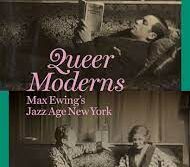 SEEING THROUGH
SEEING THROUGH
A Chronicle of Sex, Drugs, and Opera
by Ricky Ian Gordon
Farrar, Straus and Giroux. 468 pages, $32.
SEEING THROUGH is composer Ricky Ian Gordon’s detailed, passionate recollection of his life and career. Discovering opera as a child, Gordon found it a means of escaping a tumultuous home life, which included sexual abuse as well as drug and alcohol addiction, even as he developed an appreciation for beautiful music. In a conversational style, he recounts his neuroses and obsessions, his triumphs and tragedies.
The youngest of four children and the only boy, Ricky Ian Gordon—named for Humphry Bogart’s character in Casa-blanca—dealt with a highly critical, angry father, who punched holes in the walls and picked his son up by his ears. Taking cues from his mother, who managed his father’s rage by having frequent sex with him, the young Gordon imagined that sex with his father would resolve the tension between them. While he never acted on this impulse, it became one of his obsessions. Later, starting at age fifteen, perhaps influenced by these early desires, he would have sex with his sisters’ grown-up male friends. These encounters always ended disappointingly, as these essentially straight men would never leave their wives or girlfriends for him; he was just an experiment or passing fancy. Looking back now, even as he recognizes that these hookups were a form of abuse, he still remembers them—and the men—with fondness.
Attending Carnegie Mellon University as a music major, he briefly pursued acting before finding his calling as an opera composer. Along the way, he stole money from housecleaning clients to support his drug addiction before entering twelve-step recovery programs. There he met Jeffrey, the love of his life and longtime partner. HIV-positive, Jeffrey taught Gordon how to love and care for another person. Gordon nursed Jeffrey through his final illness, which inspired his opera The Tibetan Book of the Dead, written to prepare both men for the end.

Gordon writes informatively about music, exploring many of his own works, including their initial inspiration, the process of collaborating with librettists, and the way in which everything comes together in rehearsals. Some, like his opera The Grapes of Wrath, progressed smoothly, while others, such as The Garden of the Finzi-Continis, faced difficulties with budgets, time constraints, and last-minute changes of conductors and singers. His sources of inspiration varied widely, from 27, which is about Gertrude Stein and her salon of artists and writers, to Ellen West, based on Frank Bidart’s poem about a famous psychoanalytic case study of an anorexic woman.
His look at other ar-tists’ music is illuminating. One of his favorite composers is Benjamin Britten, especially his last opera, Death in Venice, based on Thomas Mann’s novella. While he did not understand Stravinsky’s work at first, once he got it, he had “to stop, listen, and marvel at being alive in a universe that created such a being.” Even Joni Mitchell gets careful consideration as he examines the progression of her music through her albums, and his reaction to them. He also recounts giving her a handmade dress at a concert. His encounter with Stephen Sondheim was disheartening. His confession that he was mystified by Merrily We Roll Along led to a huge fight. His friendship with Tony Kushner finds the playwright offering advice and affectionately calling him “Ricky Ann.”
Gordon’s life is full of dramatic, even operatic scenes, which is perhaps not surprising for someone who found opera to be a source of solace and meaning as a child. His memoir speaks to artists who may be struggling with trauma about the possibility of using their life experience to create something beautiful. _______________________________________________________
Charles Green, a regular contributor to this magazine, is a writer based in Annapolis, Maryland.





